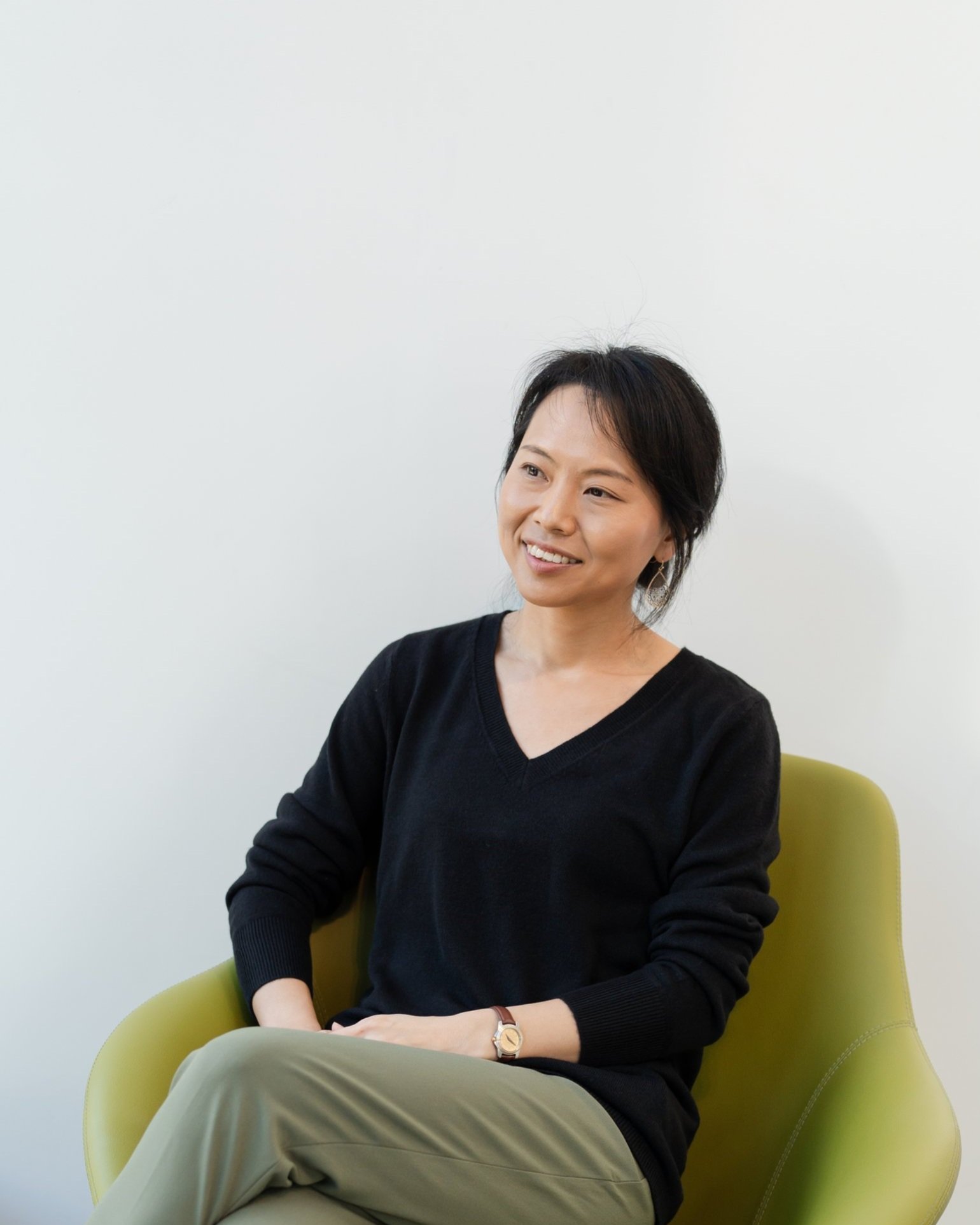PSYCHOTHERAPY
Hello.
안녕하세요.
An nyeong ha se yo.
I am Yun Garrison, a licensed psychologist in Maine, practicing in 42 states via telehealth services. I offer individual and couples therapy for adults in English and Korean.
My unique offerings include:
Asian American and immigrant psychotherapy
Psychotherapy for women of color
Psychotherapy in Korean
Interracial/international couples
Grief, ambiguous loss, & posttraumatic growth
PSYCHOTHERAPY SERVICES
grief & ambiguous loss
shame & guilt
identity issues
relationship issues
depression & anxiety
posttraumatic growth
intergenerational trauma
Individual Therapy
interracial couples
international couples
fear of vulnerability
cultural differences
communication issues
lack of emotional intimacy
getting stuck in the same place
Couples Therapy
AREAS OF FOCUS
Asian, Asian American, & Asian
Immigrant Psychotherapy
-
I have extensive experience working with adults of Asian descent through both psychotherapy and research. Many of my clients are Asian Americans, including Filipinx Americans, Chinese Americans, Korean Americans, Japanese Americans, Vietnamese Americans, South Asian Americans, and many others. I enjoy working with queer, transgender, gender-fluid, or non-binary Asian Americans, multiracial Asian Americans, Asian American adoptees, Asian immigrants, and Asian international students. I recognize that being Asian may be a salient identity, but I also strive to balance and honor the other important aspects of one's identity in the therapeutic process.
Love, Couple Relationships &
Cultural Context
-
Couples' emotional bonds, love languages, and ability to seek, receive, and offer comfort are often influenced by diverse cultural norms and identities. Some interracial or intercultural couples may face unique challenges when navigating new milestones together or living in environments with limited cultural, racial, and food diversity. I have supported interracial couples, particularly when one partner is an immigrant or the child of immigrants. I deeply value how understanding each other’s full stories—including their cultural backgrounds—can enrich love and trust in the relationship.
Grief, Ambiguous Loss, &
Posttraumatic Growth
-
Sometimes, we encounter losses that are ambiguous, making them difficult to understand and grieve. I am dedicated to supporting clients who experience a sudden or gradual loss of connection to a person, community, culture, language, sense of self, object, animal, nature, or place. I also work with clients who expereince bereavement, migratory grief, or Korean Hann. Some losses can be traumatic. I value helping clients understand their healing process and find ways to grow and thrive after trauma.
FEES & INSURANCE
I offer various frequencies or lengths of sessions, from 50 minutes to 90 minutes or longer. The session fee varies, depending on the length and modality of the session.
-
$250
-
$210
-
$290
-
$250
Currently, I do not accept any insurance. I can provide documentation for a “superbill,” an out-of-network reimbursement.
Please contact me to discuss the best option to meet your needs.
MY APPROACH
“Rarely, if ever, are any of us healed in isolation. Healing is an act of communion.”
No one chooses to suffer. When life makes us shrink away from who we really are, we live in pain.
I strive to support you in feeling the most like yourself and transforming your life into one that is fully lived. My work will prioritize your stories, values, strengths, communities, and ancestral and generational wisdom and resilience.
You may be ready to talk about your struggles or be hesitant, but wherever you are, I am honored to create a space for your course and story to be told and heard.
MORE ABOUT MY APPROACH
Humans are complex.
So, I value being flexible and holistic in my therapy approaches.
My primary therapeutic approach is drawn from Psychodynamic Therapy and Relational Cultural Therapy. Both approaches lay the foundations for how therapeutic relationships are powerful vehicles for change; in such relationships, we build awareness of the deeper roots of your worst and familiar pain.
I intentionally blend these approaches with Acceptance and Commitment Therapy (ACT) and Dialectical Behavioral Therapy (DBT). These approaches provide tools for ways in which you can free yourself from being stuck and help us know the difference between what to accept and what to change.
My overall therapy philosophy is guided by Liberation Psychology frameworks. Throughout my practice and reflections, I strive to hold space for exploring how structural issues, such as power, privilege, and interlocking systems of oppression, play a role in your generational and personal expereinces and your ability to live fully and joyfully.
My work with couples is guided by Emotionally Focused Couples Therapy (EFCT), which emphasizes the fundamental human needs for safety, connection, and attachment in a love relationship.
-
Ph.D. in Counseling Psychology, University of Iowa, USA
M.A. in Educational Measurement and Statistics, The University of Iowa, USA
M.A. in Psychology, Yonsei University, South Korea
B.B.A. in Business Administration, Yonsei University, South Korea
I am an Assistant Professor of Psychology at Bates College, a highly selective small liberal arts college in Maine.
I obtained my Ph.D. in Counseling Psychology from the University of Iowa. I completed a doctoral internship at Colorado State University and a postdoctoral residency at Psychology Specialists of Maine. I also received two Master’s degrees: one in Educational Measurement and Statistics from Iowa and another in Psychology at Yonsei University, Seoul, South Korea.
My college major was Business Administration. After college, I worked in industry and higher education, during which time I gained the courage to change my career. I pursued counseling psychology aligned with my values of compassion, social justice, and creativity.
I spent nine years in graduate schools to grow as a critical thinker, empathic witness, and culturally and structurally responsive psychologist. During that time, I met people from different walks of life and those who work toward individual and system-level changes. This experience led me to train in multicultural, critical, and liberation psychology approaches, as human suffering is often caused and prolonged by structural issues.
-
American Psychological Association
The Society of Counseling Psychology
Society for the Advancement of Psychotherapy
Asian American Psychological Association
Society for the Study of Psychiatry and Culture
Society for the Psychology of Sexual Orientation and Gender Diversity
Korean Psychology Network
-
Licensed Psychologist, State of Maine (PS2385)
PSYPACT (Psychology Interjurisdictional Compact) Authority to Practice Interjurisdictional Telepsychology (APIT 15040)
-
Please explore About Me.
MORE ABOUT MY APPROACH
Humans are complex.
So, I value being flexible and holistic in my therapy approaches.
My primary therapeutic approach is drawn from Psychodynamic Therapy and Relational Cultural Therapy. Both approaches lay the foundations for how therapeutic relationships are powerful vehicles for change; in such relationships, we build awareness of the deeper roots of your worst and familiar pain.
I intentionally blend these approaches with Acceptance and Commitment Therapy (ACT) and Dialectical Behavioral Therapy (DBT). These approaches provide tools for ways in which you can free yourself from being stuck and help us know the difference between what to accept and what to change.
My overall therapy philosophy is guided by Liberation Psychology frameworks. Throughout my practice and reflections, I strive to hold space for exploring how structural issues, such as power, privilege, and interlocking systems of oppression, play a role in your generational and personal expereinces and your ability to live fully and joyfully.
My work with couples is guided by Emotionally Focused Couples Therapy (EFCT), which emphasizes the fundamental human needs for safety, connection, and attachment in a love relationship.
WHAT TO EXPECT
First, Take Your Time
It’s natural to feel unsure or nervous about starting therapy. Feel free to explore my website to see if we might be a good fit. If your community has shamed people about seeking therapy, reaching out can take extra effort and courage. Take your time and trust yourself.
Second, 15-Minute Phone Call
I offer a free 15-minute call first. I will answer your questions and hopes and fears of seeking therapy. Take time to sense my style, personality, and other aspects that matter to you to feel safe. Once you decide to work with me, you’ll receive a welcome packet.
Third, 1-Hour Initial Consult
The first appointment is to build a shared understanding of you as a whole person and your goal for therapy. It is also an opportunity to feel a better sense of safety and the therapeutic relationship you seek. If we’re a good fit, we’ll schedule future sessions then.
Fourth, Committing to Therapy
Committing to therapy is another courageous step. Depending on your needs and goals, we can meet weekly or biweekly for short-term or long-term therapy. Bring your concerns to each session, and we’ll tailor our time together while keeping your goals in mind.
Fifth, Ending and The Next
Just as it can be at the beginning, ending therapy can bring up a range of emotions. When your goals are achieved and desired changes or new insights are experienced, we will explore a meaningful conclusion to working together. We will also take time to prepare for how you will navigate life after therapy.
FREQUENTLY ASKED QUESTIONS
-
Thank you for asking! My name is written as Yun and pronounced as [Yoon].
-
The word "counseling" (상담) in Korean, when broken down into its Chinese characters (相談), can be interpreted as "facing each other" and "warm conversations." From my clinical experience, this conversation is not just between the counselor and the client, but also a meaningful dialogue with oneself.
Generally, counseling or psychotherapy is a collaborative process where individuals or couples work with a professional to better understand and address psychological, emotional, behavioral, and relational difficulties. Through counseling, you can explore and find ways to manage challenges such as stress, anxiety, depression, relationship conflicts, and inner struggles, while gaining deeper self-awareness and personal growth. Professional counselors are trained to create a safe, confidential environment, where you are free to express your thoughts and feelings openly and honestly.
There are different perspectives in conceptualizing counseling and psychotherapy. The counseling and psychotherapy I provide is based on the philosophy, theory, and evidence that view human psychological struggles not as mental disorders or abnormalities, but as natural and understandable experiences that can occur in the course of life.
-
Confidentiality is strictly maintained in counseling. This is essential to ensure that you feel safe during sessions, allowing you to freely explore and reflect on various psychological aspects. Rest assured that your counseling information will not be shared with anyone outside of our sessions without your explicit and written permission. However, in rare cases, including when there is a serious threat to your safety or the safety of others, necessary actions may be taken to protect those involved. Except for these situations, your counseling content will remain confidential.
-
I do not accept insurance at this time. If you are interested in seeking reimbursement from your health insurance company, I can provide you with a superbill, which you can submit to your insurer. I encourage you to contact your insurance company in advance to discuss their reimbursement policies and whether they cover out-of-network providers.
-
Currently, I am only able to provide services through a HIPPA-compliant video-conferencing platform. I will explain you how to access it. You do not need to log in attend each session.
If you prefer in-person counseling in your area, I would be happy to assist you by providing helpful information and recommendations.
-
No. Unfortunately, if we we know each other already, I encourage you to seek therapy from someone else to avoid conflicts of interest and to ensure your sense of privacy. For this reason, I will not be able to provide psychotherapy services to any Bates College students, faculty, and staff because of my role as a faculty member there.
CONTACT
Thank you for taking the time to explore my psychotherapy website.
If you would like to discuss your interest in setting up a 15-minute phone call with me, please email me: hello@YunGarrison.com
It typically takes 2-3 business days to receive my reply.







